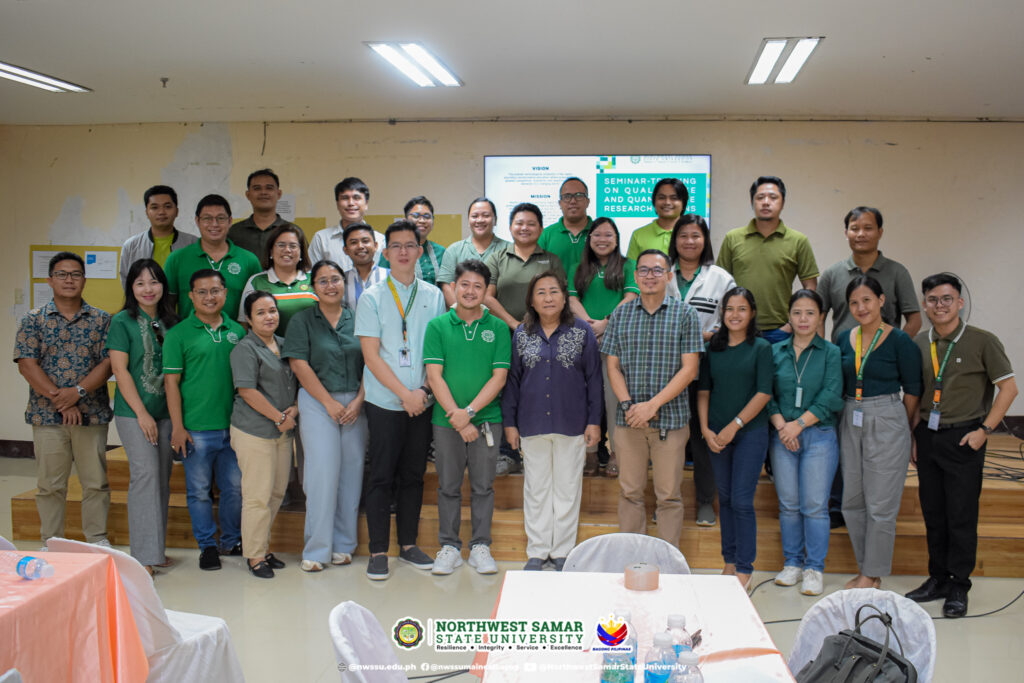
Researchers from Northwest Samar State University (NwSSU) deepened their expertise in research methodologies during the Seminar Training on Qualitative and Quantitative Research Designs, held on May 26–27 at the 4th Floor, Administration Building, NwSSU.
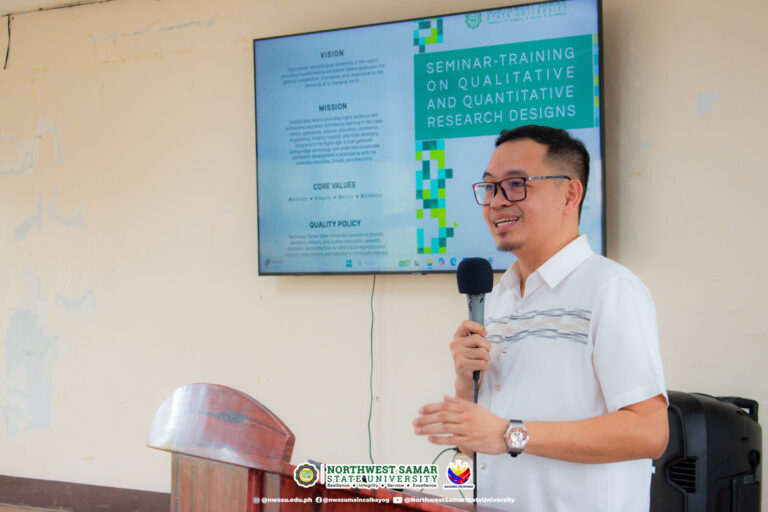
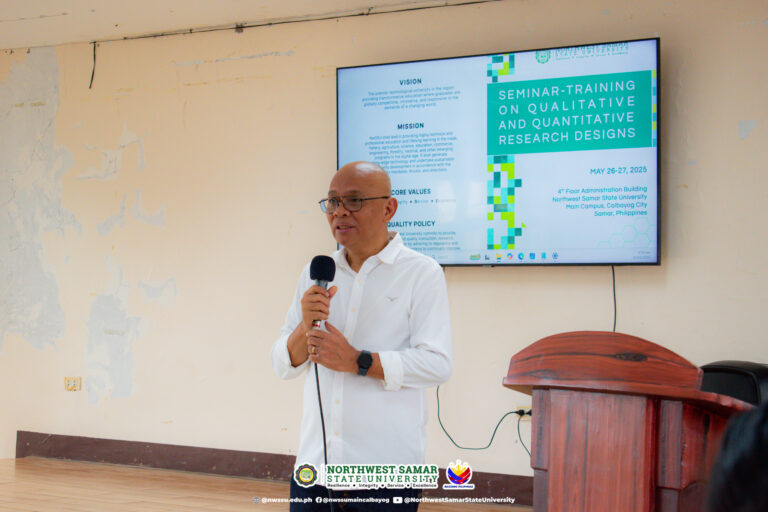
This two-day training aimed to strengthen NwSSU’s research culture by equipping faculty and staff with essential tools and knowledge for conducting interdisciplinary studies. The seminar opened with welcome remarks from Dr. Riz Rupert L. Ortiz, Vice President for Research, Innovation, and Extension, who underscored the crucial role of research in advancing institutional goals. University President Dr. Benjamin L. Pecayo followed with a message emphasizing research as a foundation for innovation and academic excellence.
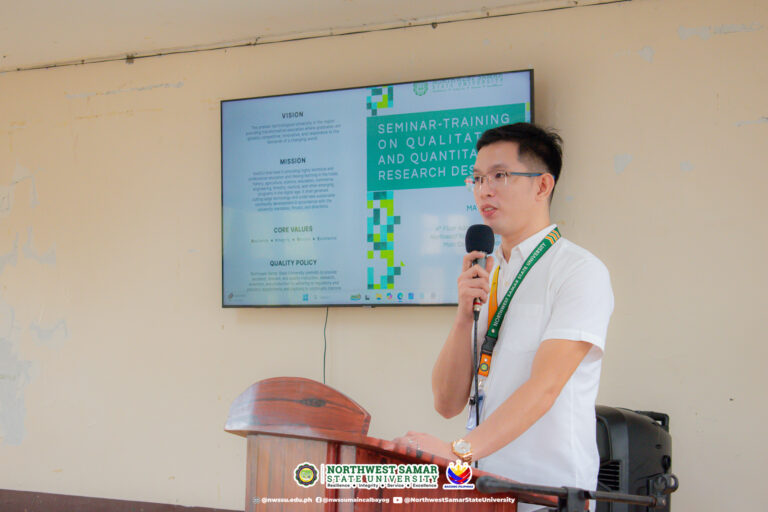
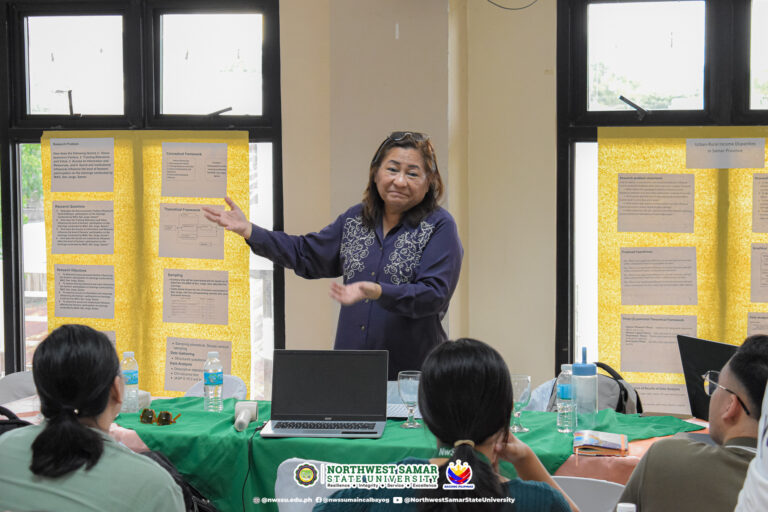
Dr. Joseph Emil A. David, Director of the Office of Research and Development Services (ORDS), introduced the event’s resource speaker, Dr. Mary Gretchen F. Chaves, Dean of the School of Business Management at the University of the Philippines Cebu. A seasoned academic and research mentor, Dr. Chaves led the intensive training, covering both qualitative and quantitative research frameworks, design considerations, and real-world applications.
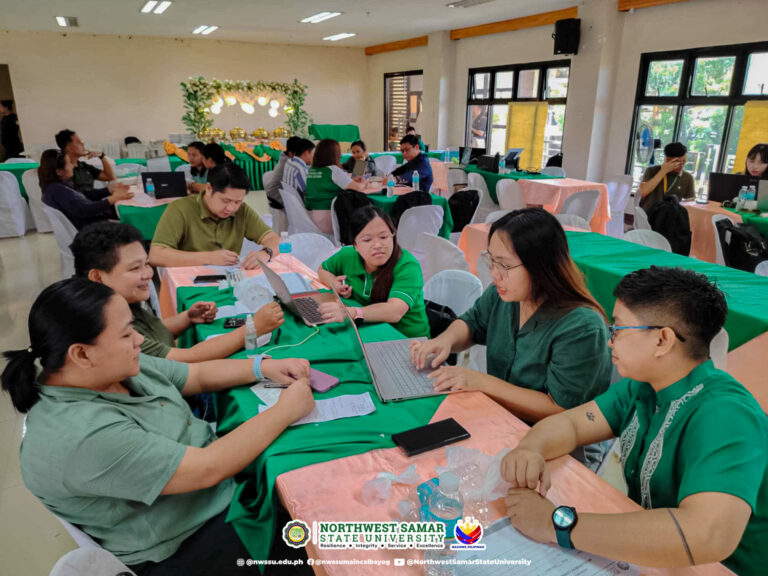
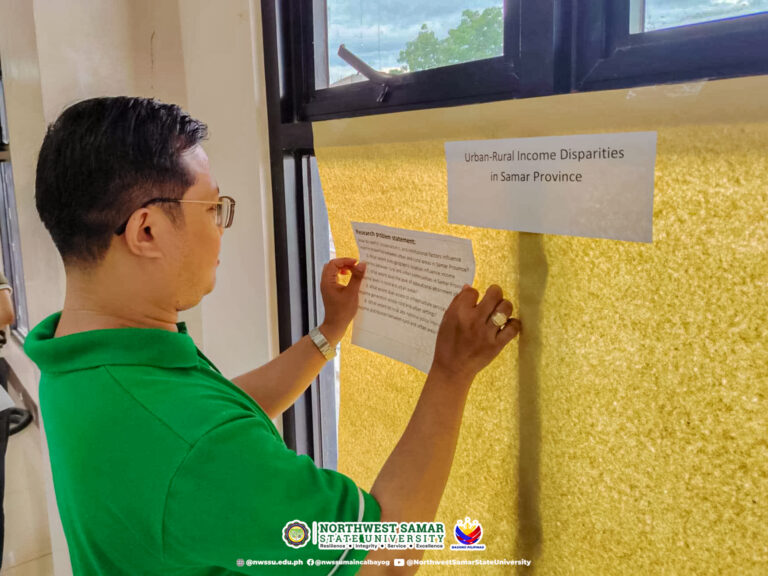
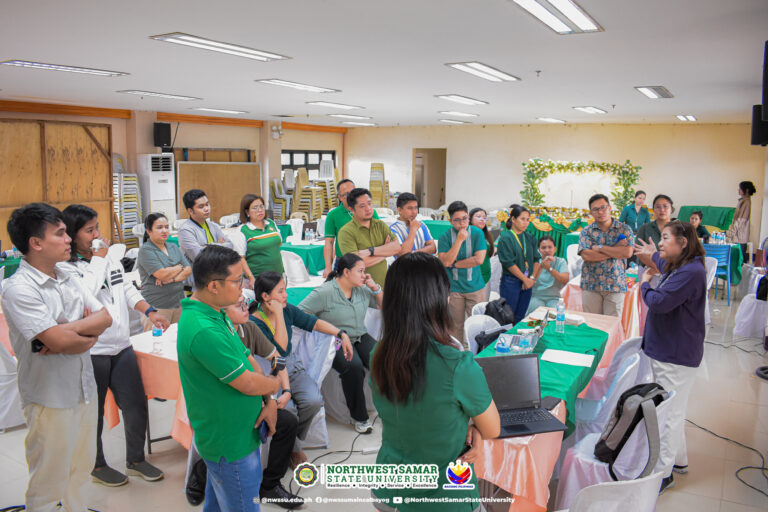
To assess participants’ baseline knowledge, a pretest was administered before the technical sessions. Day 1 focused on theoretical and conceptual foundations, while Day 2 delved into analytical approaches and practical integration of methodologies. An online post-test at the end of the seminar evaluated participants’ knowledge gains and overall learning experience.
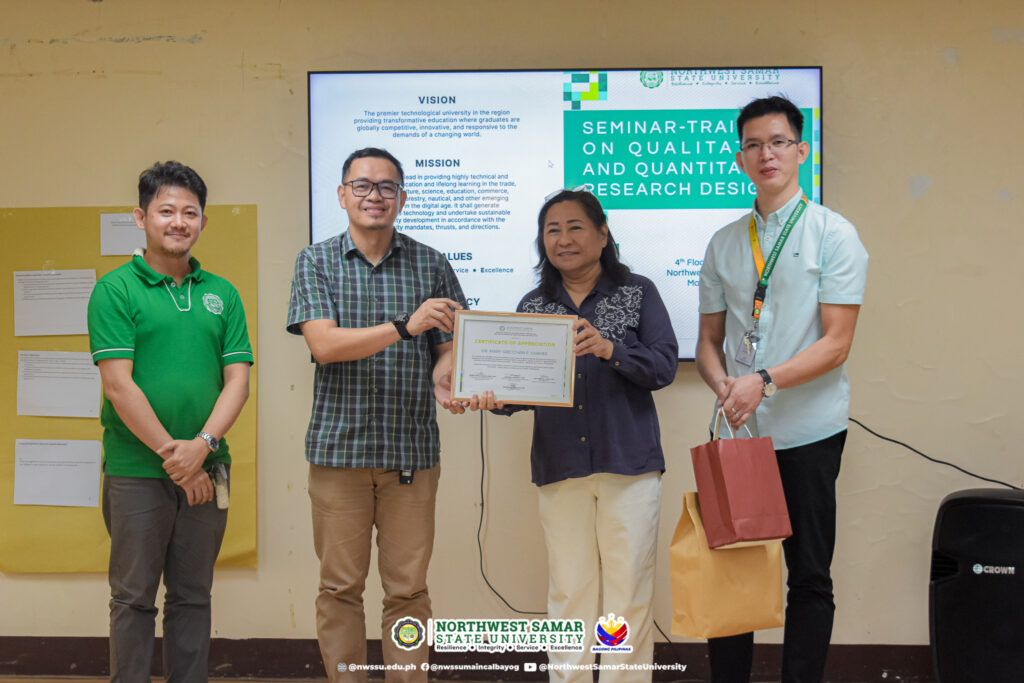
As the seminar drew to a close, Dr. Ortiz led the awarding of the Certificate of Appreciation to Dr. Chaves, assisted by Dr. David and Mr. Harris C. Tarrayo, Director of the Center for Innovative Computing and Data Analytics. Mr. Tarrayo also delivered the closing remarks, encouraging attendees to apply their enhanced competencies in future institutional research and community-based studies.
Through initiatives like this seminar, NwSSU continues to foster a robust research culture, ensuring faculty and researchers are equipped to drive impactful and innovative academic contributions.



